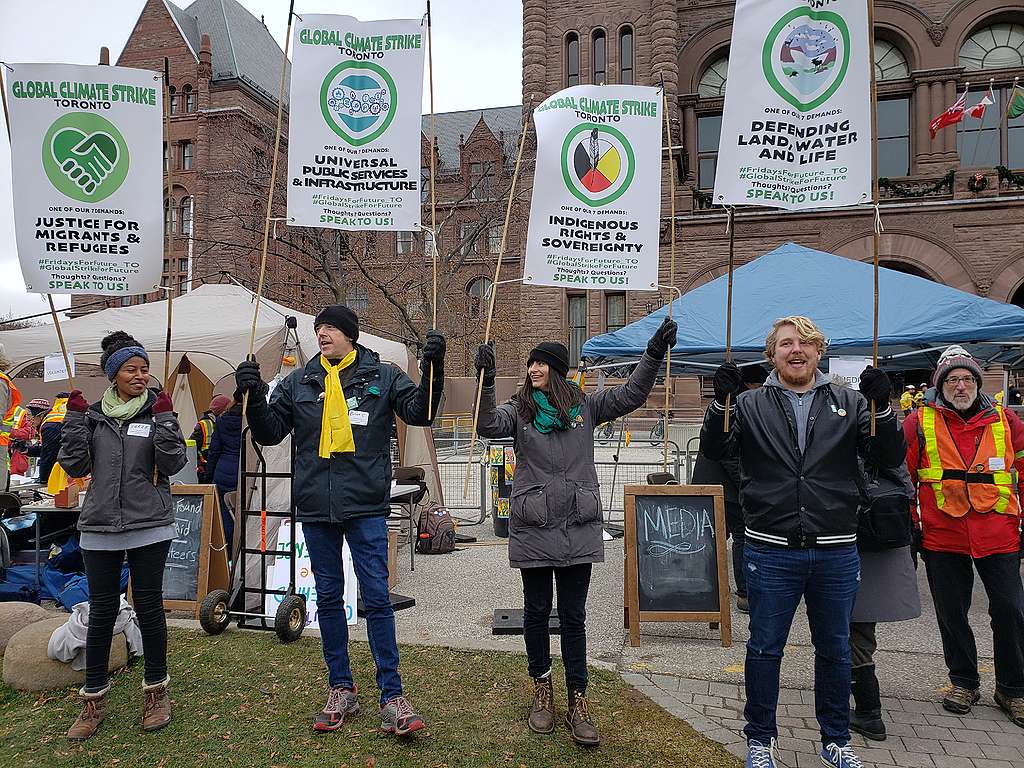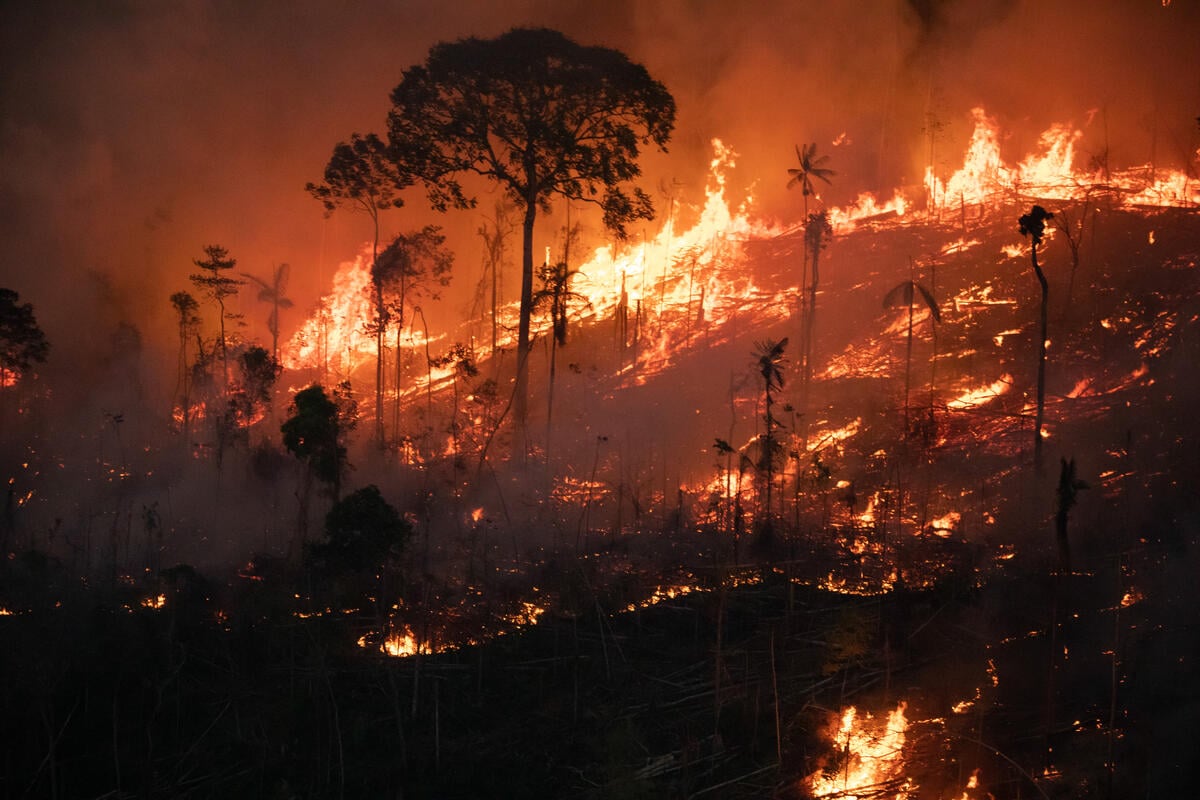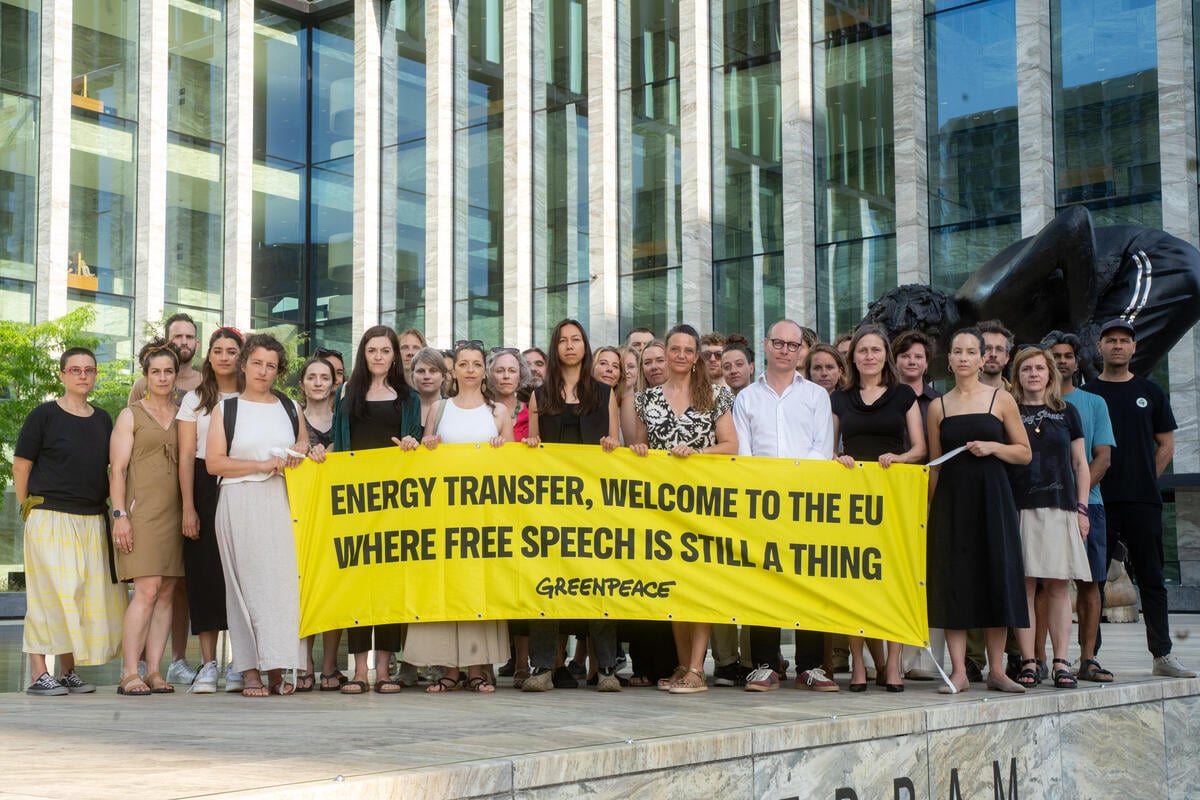
On Friday November 29th, another global climate strike took place around the world. Friday’s for future mobilized millions of people to the streets to protest governmental inaction on climate change by disrupting business as usual. In collaboration with many local environmental groups, Fridays for Future Toronto was able to gather thousands of people for yet another rally and march despite the cold weather.
Fridays For Future Toronto recognizes that system change must include everyone and that it is not sufficient to transition to a green economy without addressing the social inequities that often underlie climate issues. The group has adopted an intersectional approach to climate justice outlined by collective demands, that include indigenous rights and sovereignty; defending land, water, and life; zero- carbon economy; separation of oil and state, universal public services and infrastructure; justice for migrants and refugees and a sustainable future for all. These demands were created leading up to the September 27th Global Climate strike and have continued to shape Fridays for Future Toronto’s organizing efforts for November 29th.
The rally took place in front of the provincial legislature building at Queen’s Park and featured a panel of three speakers involved in the fight for climate justice who reflect a number of the demands and represent groups that are critical to the long-term success of the climate justice movement.
The first speaker, Sarain Fox is an Anishinaabekwe Ojibwe activist and the host of Rise on the Vice network which profiles indigenous activists and their resistance against oppression. Sarain spoke about indigenous land and water defenders who have been protecting the Earth for centuries, as well as the importance of coming together in this critical moment.
The second speaker, Rebecca Keetch, is a member of Unifor Local 222 at the GM plant in Oshawa and an activist in the Green Jobs Oshawa campaign, to nationalize the plant under worker control to produce electric vehicles. She spoke about the importance of supporting and expanding similar projects across the country to facilitate a just transition to a green economy.
The final speaker, Abonti Nur Ahmed, is a 17-year-old human rights and climate justice activist who has worked with Amnesty International to ensure youth involvement in global issues and is currently involved in Fridays For Future initiatives. She spoke about the importance of bringing marginalized communities to the forefront of social justice fights.
The day of the strike was important to drive our message home to both policymakers and consumers. The strike was on Black Friday, which provided us with an opportunity to protest the harmful consumption the day promotes.
The strike also marks a year since the provincial government of Ontario released their climate plan, which fails to address the severity of the climate crisis and where next to no progress has been made to cut carbon emissions.
In the larger framework of global climate action, the strike took place on the Friday before the start of the 25th United Nations Climate Change Conference in Madrid Spain where the importance of the conference in determining the fate of the planet cannot be overstated.
The November 29th climate strikes made it clear to world leaders that the eyes of all future generations are on them. This is a critical moment that demands us to be brave and to understand we must all work together for a just transition. We must break down silos and strengthen people power, to tackle head on the crisis we face.
Fridays for Future will continue to mobilize and strike until there is substantial action on climate justice for the sake of our future and the future of our planet.
Kendall Mar, Member of Fridays for Future Toronto



